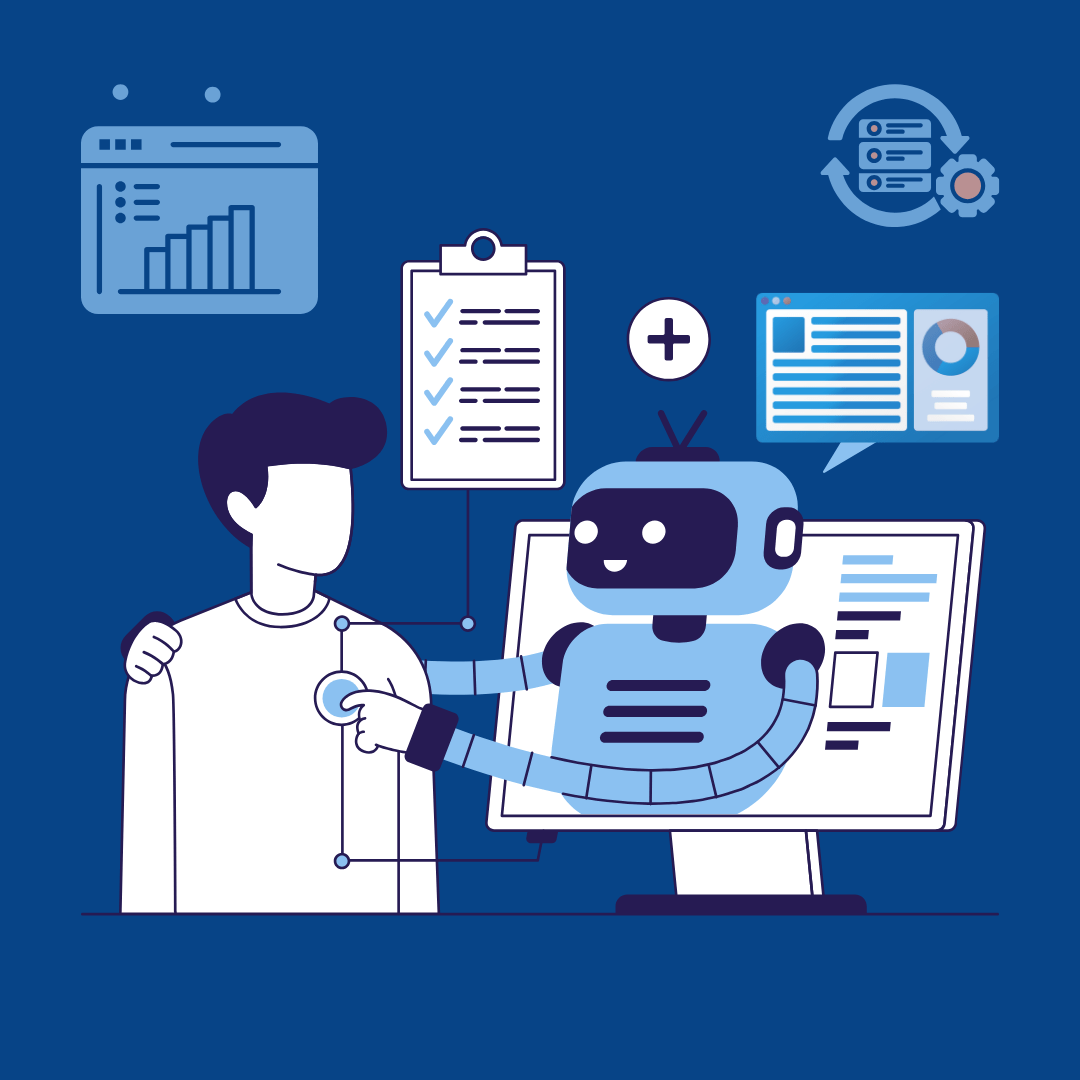
Introduction
The healthcare industry stands at a critical inflection point as artificial intelligence (AI) transforms market research methodologies and capabilities. While AI promises unprecedented insights and efficiencies, its ethical implementation will be the true differentiator in the coming years.
AI-powered market research can process vast datasets from electronic health records (EHRs), medical literature, social media, and wearable devices to generate insights faster and more accurately than traditional methods. However, ensuring ethical AI practices is crucial to maintaining patient trust, regulatory compliance, and fair representation in research findings.
The Current Healthcare Market Research Landscape
Traditionally, healthcare market research has relied on:
- Surveys & Focus Groups – Subject to bias and limited sample sizes.
- Clinical Trials – Expensive, slow, and sometimes lacking diverse representation.
- Medical Record Analysis – Facing increasing privacy concerns.
How AI is Transforming Healthcare Market Research
| Traditional Method | AI-Driven Method | Advantages |
| Surveys & Focus Groups | AI-powered sentiment analysis on patient feedback | Reduces bias, captures real-time insights |
| Clinical Trials | AI-assisted trial recruitment & monitoring | Improves efficiency and diversity |
| Medical Record Analysis | AI-based predictive modelling of patient data | Enhances accuracy, reduces manual errors |
Despite these advances, ethical challenges must be addressed to ensure fairness, privacy, and accountability in AI-driven healthcare market research.
Why Ethics Will Drive the Next Wave of Disruption
1. Patient Data Privacy and Consent
Healthcare data is extremely sensitive, requiring strict ethical guidelines to ensure:
- Clear patient consent mechanisms for data usage.
- Transparency in AI-driven data collection & analysis.
- Compliance with regulations like GDPR, DPDPA & HIPAA.
Impact of Ethical AI on Patient Trust
| Approach | Outcome |
| Transparent AI usage policies | Increased patient participation in research |
| Secure, anonymized data handling | Reduced privacy risks & regulatory fines |
| Ethical AI frameworks | Stronger partnerships with healthcare providers |
A 2023 PwC report found that 87% of patients are willing to share their health data if they trust the organization handling it. Companies that prioritize transparency will gain a competitive edge in accessing high-quality data.
2. Addressing Algorithmic Bias
AI models trained on non-representative data can perpetuate or amplify existing healthcare disparities. Ethical AI implementation ensures:
- Fair representation across demographics (race, gender, age, socioeconomic background).
- Bias mitigation strategies during AI model training.
- Equitable insights that improve healthcare accessibility.
Case Study: Bias in AI-driven Medical Research
A 2022 study in The Lancet Digital Health revealed that AI diagnostic tools were 20-30% less accurate for minority populations due to skewed training data. Addressing these biases improves healthcare outcomes and expands market reach.
3. Explicability and Transparency
Healthcare stakeholders demand clarity in how AI-driven insights are generated. Ethical AI ensures:
- Clinical decision-makers understand and trust AI recommendations.
- Regulatory bodies can audit AI-driven research processes.
- Healthcare professionals & investors feel confident in AI-driven conclusions.
Regulatory Trends: The Demand for AI Transparency
| Regulation | Requirement | Enforcement Year |
| EU AI Act | AI transparency & explainability mandates | 2024 |
| FDA AI/ML Framework | AI-based medical devices must provide clear decision-making explanations | 2025 |
| HIPAA AI Expansion | Stronger rules for AI-driven patient data analysis | 2026 |
Emerging Ethical AI Applications in Healthcare Market Research
- Clinical Trial Optimization – Ethical AI enhances trial recruitment, ensuring diverse representation while maintaining data security.
- Patient Experience Analysis – Natural language processing (NLP) enables privacy-respecting patient sentiment analysis.
- Predictive Market Modelling – AI-driven demand forecasting is adjusted for data limitations & bias correction.
AI in Healthcare Market Research: Growth Trends
According to Markets and Markets, AI-driven healthcare market research is projected to grow from $3.2 billion in 2023 to $9.5 billion by 2028, fuelled by ethical AI advancements.
What This Means for Industry Stakeholders
For Research Providers
Companies that embed ethical considerations into their AI frameworks will establish sustainable competitive advantages through:
- Higher trust levels with healthcare institutions.
- Better regulatory alignment and risk mitigation.
- More accurate and inclusive research insights.
For Healthcare Organizations
Partnering with ethically-driven research providers ensures:
- More accurate market intelligence for drug and device development.
- Lower legal and reputational risks.
- Improved healthcare delivery strategies based on unbiased insights.
For Investors
Ethical AI will be a key value differentiator, with investments flowing toward companies that demonstrate:
- Innovative AI technology with compliance frameworks.
- Sustainable data handling practices.
- Commitment to fair and representative research methodologies.
AI-Driven Market Research Investment Growth (2021–2025)
| Year | Investment Volume (in billions) |
| 2021 | $1.8B |
| 2022 | $2.5B |
| 2023 | $3.2B |
| 2024 | $6.1B |
| 2025 (Projected) | $9.5B |
The Path Forward
The disruption of healthcare market research through ethical AI isn’t just a moral imperative—it’s a business necessity. As regulatory frameworks evolve and stakeholder expectations increase, organizations that lead with ethics will define the next generation of healthcare market intelligence.
Key Takeaways:
- Transparency & privacy-first AI models will gain consumer trust and regulatory approval.
- Bias mitigation strategies will expand market reach and improve healthcare accessibility.
- AI explainability & regulatory compliance will be critical differentiators in market research.
Organizations that adopt ethical AI now will shape the future of healthcare market research and establish long-term leadership in the industry.
1. What is ethical AI in healthcare market research?
Ethical AI ensures that healthcare data is collected, processed, and analyzed transparently, fairly, and securely, without reinforcing biases or violating patient privacy.
2. How does AI improve healthcare market research?
AI enhances data analysis speed, accuracy, and predictive capabilities, providing real-time insights into market trends and patient needs.
3. Why is algorithmic bias a problem in healthcare AI?
AI trained on non-representative datasets can produce misleading results, worsening healthcare disparities. Ethical AI ensures fair representation.
4. How do regulations impact AI-driven healthcare research?
Laws like the EU AI Act, HIPAA, and FDA AI frameworks are increasing transparency and compliance requirements for AI-driven research.
5. What industries benefit from ethical AI in healthcare research?
Pharmaceuticals, biotechnology, hospitals, medical device companies, and insurers all benefit from bias-free, transparent, and secure AI-driven market insights.


